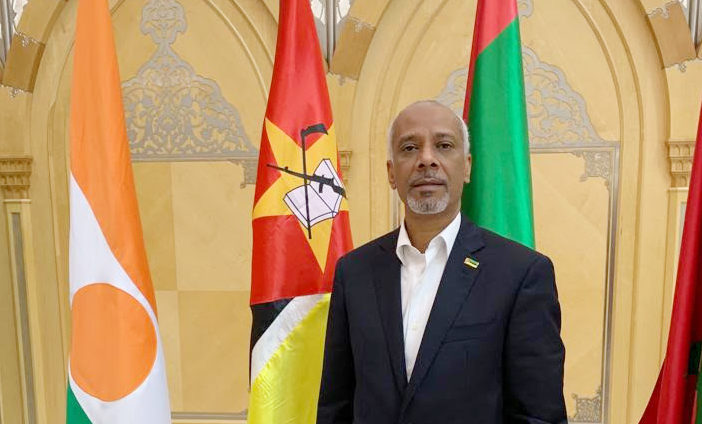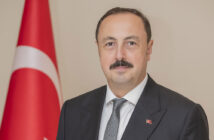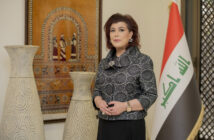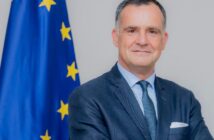Ambassador of Mozambique
What are the achievements of the 23-year diplomatic relations between Mozambique and Saudi Arabia?
Although bilateral relations between the two countries have lasted for over twenty-three years, the Embassy of Mozambique opened just ten years ago. During these ten years, representatives and diplomats of the two countries have been working to lay the foundation for robust cooperation. Today, the most significant achievements are political cooperation and humanitarian assistance. There is an enormous potential for public-private partnerships in the coming years, especially in agriculture, agro-industrial production and processing, fisheries, mining, renewable energy, tourism, finance, and textiles. Mozambique has rich natural resources, vast arable land of about 36 million hectares, great availability of water, energy, and a favorable climate for agriculture and livestock.
Recalling Saudi Arabia’s government interest and vision for renewable energy, I would like to emphasize that Mozambique has huge energy potential from hydroelectric to renewable resources, amounting to solar energy 23,000 GW, followed by hydro 19 GW, wind 5 GW, biomass 2 GW, and geothermal energy 0.1 GW. I also envision productive cooperation in tourism, as marine and protected areas cover about two million hectares of the country and can attract Saudi travelers interested in ecology and nature conservation.
What specific areas of cooperation are included in a General Cooperation Agreement?
In 2016, the Republic of Mozambique and the Kingdom of Saudi Arabia signed the General Cooperation Agreement to boost the bilateral partnerships in various fields. According to article three of the agreement, both parties agreed to promote bilateral cooperation in infrastructures, finance and investments, agriculture, environment, forestry, tourism, trade, energy, water, science, technology, and mining. In addition, several agreements are currently under negotiation, including promotion and mutual protection of investments, avoidance of double taxation, agriculture, technical and vocational training, justice, energy, employment, chambers of commerce, and industry.
What are the current rates of trade cooperation? Why should Saudi entrepreneurs invest in Mozambique?
In 2019, exports from Mozambique to Saudi Arabia totaled $1.68 million. Undoubtedly, the bilateral trade balance remains low. However, I believe the agreements will significantly change and improve the status quo, especially if increased mobility for entrepreneurs and tourists is ensured.
There are several reasons Saudi investors and entrepreneurs are welcome to invest in Mozambique, despite the risks of a developing country. Mozambique has good transport links to South Africa through the Maputo corridor, Malawi and Zambia (Nacala corridor), Zimbabwe, Malawi, Zambia, and the DRC (Beira corridor). The country has great potential for a green economy, including fertile soil, abundant water resources, dense forests, marine and fish stocks, wildlife, fascinating landscapes. The development of the gas and other extractive industries also opens up many opportunities for the manufacturing sector.
Mozambique offers a competitive labor force. In addition to access to domestic markets for an estimated 31 million people, another advantage to be reckoned with is access to the Southern African Development Community (SADC) (250 million people) and international markets such as the European Union (500 million) and the United States (326 million). This opportunity is available under specific regional, bilateral preferential agreements, namely the SADC – European Union Economic Partnership Agreement and the African Growth Opportunity Act of the USA (AGOA).
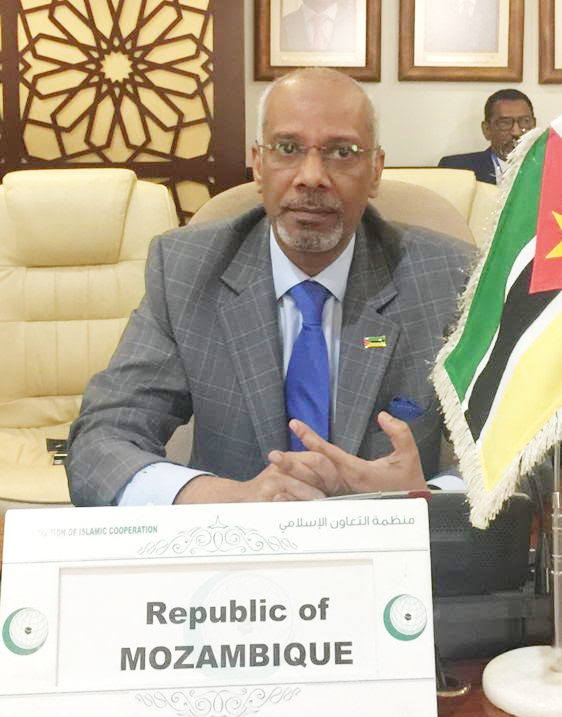
Where do you see the potential of Mozambique for equally beneficial cooperation as part of Saudi Vision 2030?
Competitiveness is the key to the development of a nation and economy. In the concept of development of both countries, Mozambique’s National Development Strategy (2015-2035) and Saudi Vision 2030 pay great attention to improving the competitiveness of their economies. Therefore, I consider it appropriate for the two countries to cooperate to achieve their goals.
Diversification is another important step. As the saying goes, “do not put all your eggs in one basket.” That is why the more diversified a country’s economy is, the more prosperous the nation will be. The National Development Strategy (2015-2035) has as a central objective to adopt a more diversified and competitive economy, intensifying productive sectors to raise income generation and create more employment opportunities, especially for the youth. To that end, sectors such as agricultural production, economic and social infrastructure, fishing and aquaculture, tourism, extractive industry, and statistics were defined as strategic. Three priorities or pillars were defined as part of Mozambique’s vision: human capital development and social justice, boosting economic growth, productivity, job creation, and strengthening the sustainable management of natural resources and the environment.
Hence, the visions of Saudi Arabia and Mozambique have common goals that can be achieved in a win-win approach.
You also serve as Mozambique’s Permanent Representative to the Organization of Islamic Cooperation (OIC). What will be your remarks on interfaith dialogue?
Undoubtedly, the events of recent decades have brought the civilized world to the edge of collapse and caused many misconceptions and misperceptions in the dialogue among civilizations. The most dangerous consequences are the risk of a conflict of diverse societies, common phobias, hate speech, and, ultimately, extremism and terrorism. To mitigate tensions between the West and the Muslim world, we need more than ever strong institutions that can foster interfaith and intercultural dialogue.
In this regard, the Organisation of Islamic Cooperation (OIC) plays an important role through the Dialogue and Outreach Department, facilitating dialogue with the various faiths and societies worldwide. A recent positive development in this regard was the establishment at the OIC General Secretariat of the Sawt al-Hikmah Centre for Anti-extremist Rhetoric. As a founding state and one of the most influential members of the OIC, Saudi Arabia plays a significant role in the context of the King Abdullah Bin Abdulaziz International Center for Inter-faith and Inter-Civilizational Dialogue (KAICIID). However, it is a collective effort that should be taken by all. Governments, international organizations such as the OIC, the United Nations through the United Nations Alliance of Civilizations (UNAOC) and UNESCO, the Holy See, social media, global enterprises, and civil society play a decisive role. They can demand and contribute to positive cultural diplomacy as a viable tool for developing interfaith dialogue. If successful, this endeavor will be essential in shaping the future, specifically for the youth, the owners of the world, figuratively speaking.

